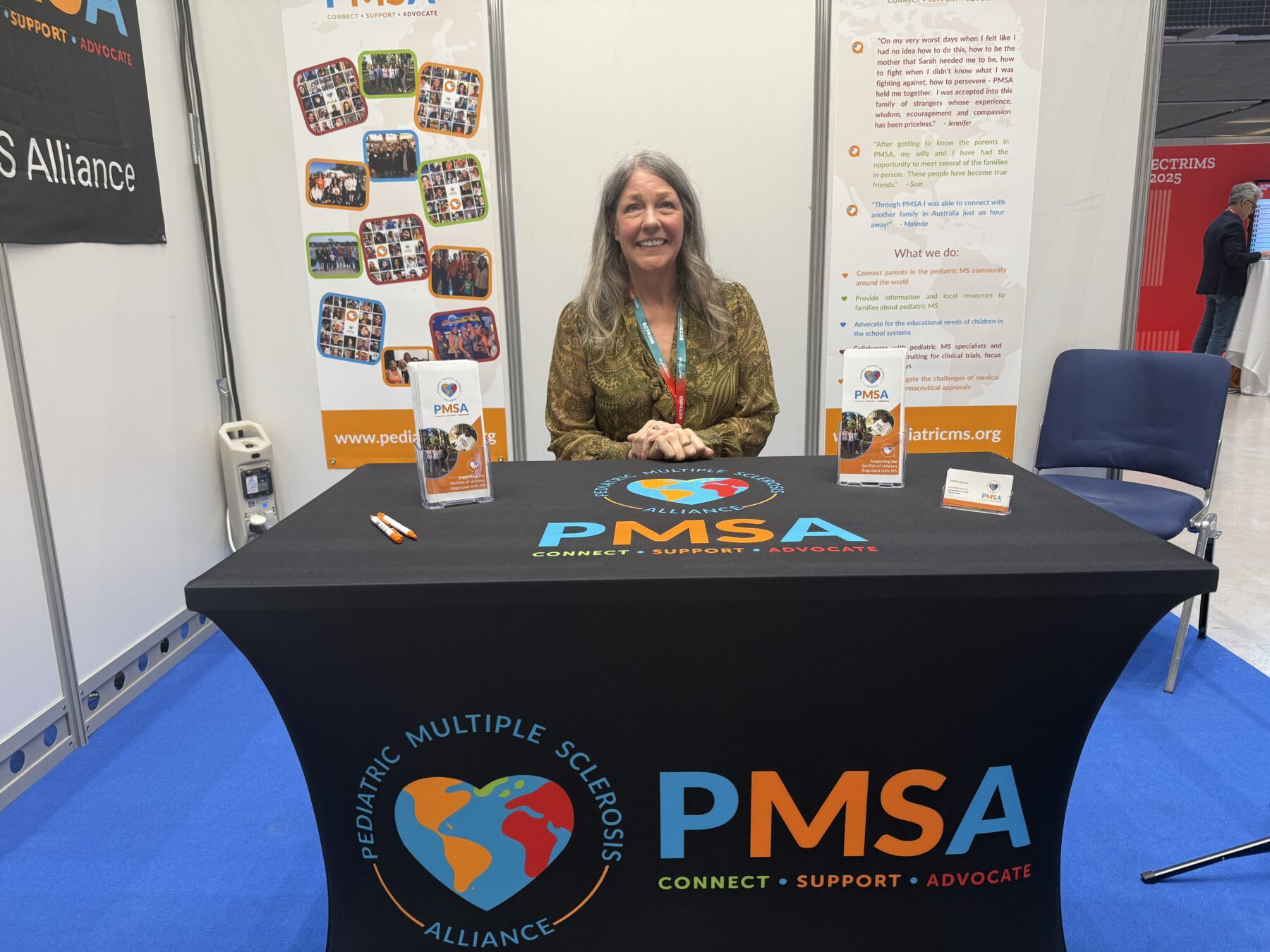Mom helps families find support for pediatric multiple sclerosis
Her own experiences led to nonprofit organization she now leads as president
Written by |

Jill Blackburn at ECTRIMS 2025 in Barcelona, Spain. (Photo by Kellie Benn)
When Jill Blackburn’s daughter, Sierra, was diagnosed with pediatric multiple sclerosis (MS) at the age of 15, Blackburn had trouble finding sufficient support and resources.
She eventually joined a relevant Facebook group, which she evolved into a nonprofit organization, the Pediatric Multiple Sclerosis Alliance. She now serves as the president. The organization offers support to parents of kids with MS and other similar demyelinating neurological conditions.
“We try to provide information on resources local to those families, both in the United States and around the world,” says Blackburn, who represented her organization at the 2025 European Committee for Treatment and Research in Multiple Sclerosis (ECTRIMS) conference in Barcelona, Spain. “We try to connect families with each other since pediatric MS is so rare.”
According to the National Multiple Sclerosis Society, between 3% and 5% of all people with MS are diagnosed before the age of 16.
How a pediatric MS diagnosis became a mission to help other families
When Sierra was diagnosed in 2012, they didn’t have a healthcare provider who specialized in pediatric MS.
“We were being treated with a pediatric neurologist in conjunction with an adult MS provider, and neither was comfortable taking care of her treatment,” says Blackburn. “They just weren’t sure. They didn’t understand pediatric MS.”
The closest pediatric MS center was in San Francisco. They had to travel from their home in Phoenix for Sierra to get the specialized care she needed.
But there were still other daunting challenges. At the time of Sierra’s diagnosis, no MS medications were approved for people younger than 18.
After her doctor ordered her first medication, the insurance company denied it. Blackburn had to appeal the decision.
“These are the things that the parents are going through on a regular basis,” she says.
Another unfortunately common issue is misdiagnosis, says Blackburn. For example, a brain MRI in a child that shows lesions may be misinterpreted as brain cancer when it really is pediatric MS.
Organization started to create awareness, fill a need
Blackburn recalls her initial struggles to find support specifically for kids with MS and their parents. At one point, Blackburn and Sierra, who had just turned 16, were advised to attend a seminar for people newly diagnosed with MS, organized by a local chapter of a national MS organization.
When they arrived at the meeting, they entered a room with approximately 20 middle-aged people.
“Several of them in wheelchairs or using walkers or canes,“ Blackburn says. “And I remember looking at my daughter’s face and she was just mortified looking at this and thinking, ‘I haven’t even started driving yet, and this is what I’m going to be.’”
During the meeting, the moderator turned directly to Blackburn, asking about her MS story.
“And I said, ‘I’m not the one who has it, it’s my daughter,’” says Blackburn. “And they had no idea that children could get it.”
It was these kinds of experiences that motivated Blackburn to start her organization.
“I decided there’s got to be a better way to raise awareness about pediatric MS and try to provide some of the support that was lacking at that time,” she says.
The Pediatric Multiple Sclerosis Alliance now provides guidance to parents in multiple areas, including insurance issues, patient assistance programs, and school programs for students with disabilities. With this kind of support, parents can feel more empowered to advocate for their kids’ well-being.
“There is no one that’s going to be a bigger mama bear than a parent for their child,” Blackburn says.
Meanwhile, Blackburn reassures parents that they are not alone, and encourages them to keep fighting.
“Don’t accept the answer ‘no,’” she says. “Someone will eventually say ‘yes,’ and we are happy to help try to make that happen.”




